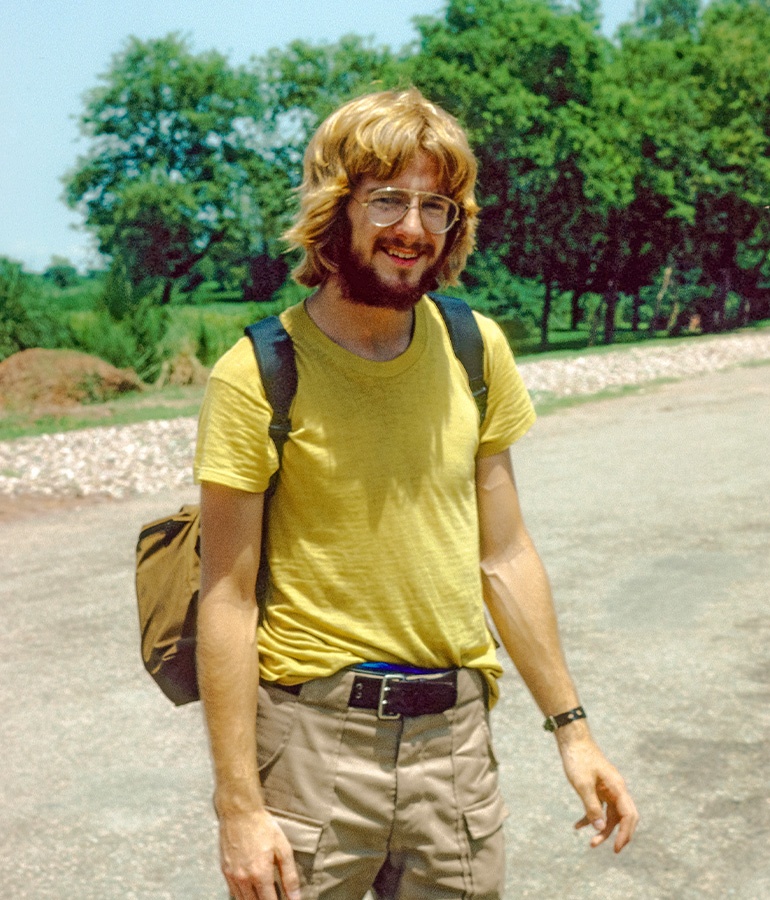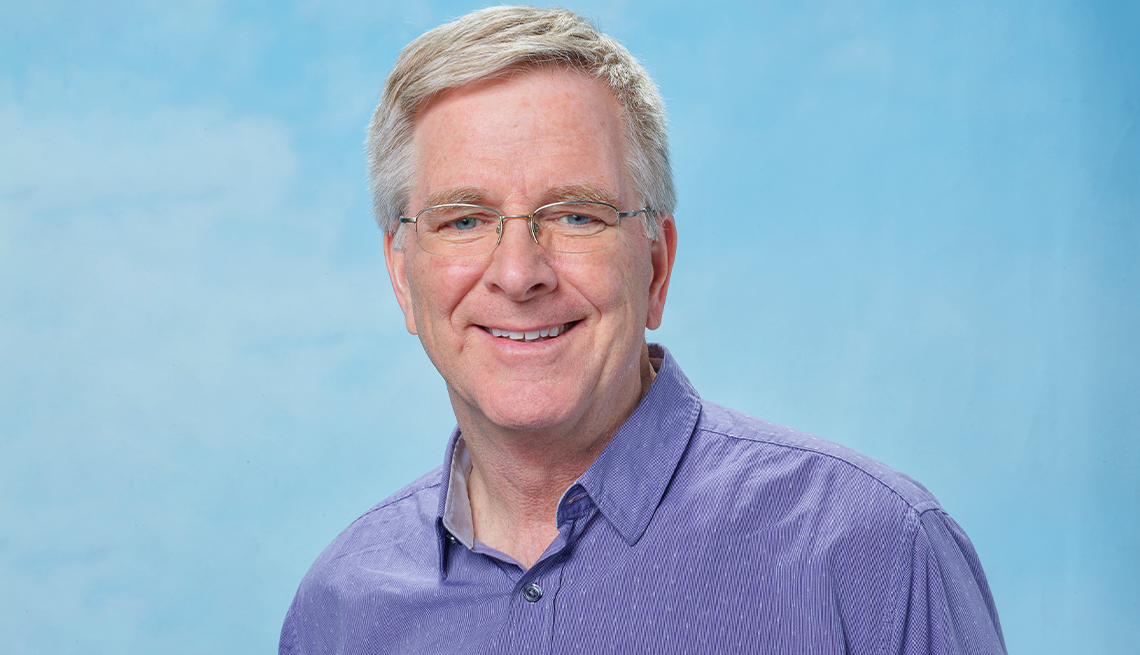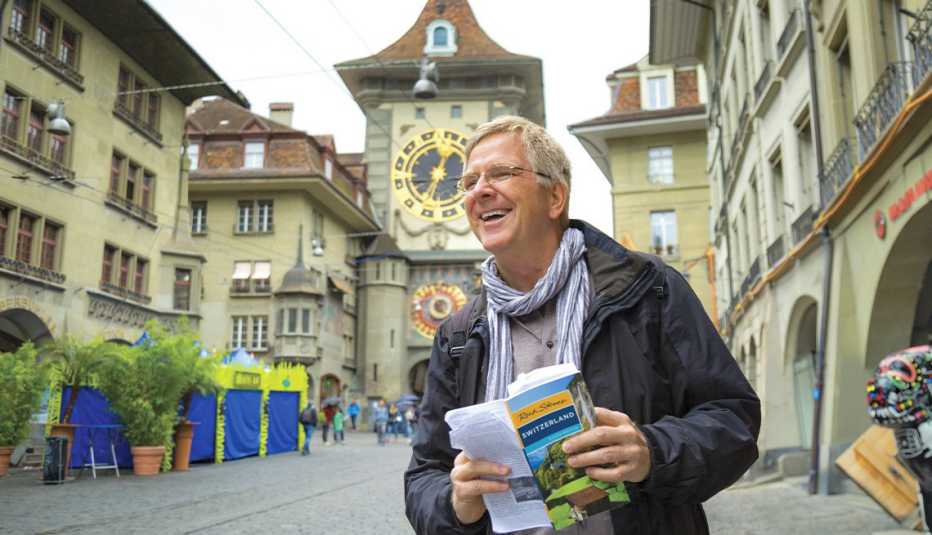Staying Fit
Rick Steves is synonymous with European travel. The 68-year-old has made about 100 trips to the continent since he began his travel business in 1976. He’s written dozens of guidebooks with insider tips, offers advice on a weekly radio show and hosts a public TV show — and more than 30,000 people book small group tours through his company each year. The best part? He still travels just for fun.
What was the first international trip you ever took? And did you catch the travel bug right away?


The first time I ever went to Europe, I was with my mom and dad going to see the piano factories in Germany and visiting relatives in Norway [in 1969]. My dad was a piano tuner in Seattle, and he decided to import pianos. [I was 14 years old] and I didn't want to go to Europe. I wanted to stay with my friends. I got over there and … Wow. [There was] different candy, different [soda] pop. I could gamble … it was a wonderland. A couple of years later, I decided I didn’t need my parents for this. I could go on my own. Ever since then, I’ve spent 100 days a year in Europe. At first just for kicks, and now as a travel teacher.
When did you first go on your own?
In ’73, the year I graduated from high school. I just took off with my best buddy from school. We just slummed around Europe for 10 weeks. That was the best trip of my life.
What are your hobbies?
I like to play the piano. I like photography. I like to play ping-pong. I like to play backgammon, and I like to play pétanque. I love to eat out, and I love history. For me, history isn’t just storytelling. History gives my travels — and my life — context. Those are my hobbies, and they all kind of carbonate my travels.







































































